Danièle Watts is an African-American actor who starred in Quentin Tarantino’s Oscar-nominated film Django Unchained, and is currently starring in Partners, a television show on FX. She is also in a relationship with a white man, celebrity chef Brian Lucas, and she is alleging that the Los Angeles police department detained her last week for “showing affection” to him in a public place. Watts told BuzzFeed that she had been sitting in Lucas’s lap in the car, kissing. On his Facebook page, Lucas posted a photo of Watts crying, her hands handcuffed behind her back and wrote that the police “... saw a tatted RAWKer white boy and a hot bootie shorted black girl and thought we were HO (prostitute) and a TRICK (client).” “It was humiliating,” Watts said.
The incident brings up the long and tortured history of the ways in which black female bodies are perceived and translated, especially when they are in close proximity with white bodies. From Sarah “Saartjie” Baartman, the Khoikhoi woman who was displayed to be marvelled at in 19th-century Europe to the persistent stereotype of the sexually voracious “Jezebel” attached to black women, the dehumanising designation of black female bodies as hypersexualised is not new. The inability to see a situation in which the black female body is not one “at work” is a learned habit, played out and cemented over hundreds of years, and incredibly hard to budge.
In her classic 1984 book, When and Where I Enter - The Impact of Black Women on Race and Sex in America, Professor Paula Giddings argues that these “negative images of Black women had always made them vulnerable to sexual assault”. She cites the work of Philip A Bruce, a historian and son of a plantation owner who published The Plantation Negro as a Freeman in 1889. He wrote that black women who saw no “immorality in doing what nature prompts” were to blame for their own denigration. He also noted the “wantonness” of black women.
In the case of Watts and Lucas, the alleged assumption was that a black woman with a white man – regardless of every other factor – must be a “wanton” sex worker. On Sunday Jamilah Lemieux, senior digital editor for Ebony magazine, posted a tweet reading: “RT if you are a Black woman (trans or cis) and have been assumed to be a sex worker by a White man.” She got 150 and several replies. One woman said she was stopped by the Chicago police department as a newly-wed. Others reported being asked by strangers and being asked, apropos of nothing, “Are you working tonight?” Anecdotal evidence suggests that this attitude is widespread and insidious – and it’s not just with law enforcement. When I was on holiday in Rome a few years ago, I was stopped more than once, at night and in the daytime, by Italian men asking me, “How much?” One man even crossed the road, dodging traffic, to breathlessly request my price. On a trip to Havana, my friend and I were stopped by a guard on our way to a hotel bar: he thought we were prostitutes looking for business among the mostly foreign clientele upstairs. After shouting at us and telling us we weren’t welcome, he only relented upon the tearful production of our British passports and accents. At the times of these events, nothing, from my clothing to my demeanour communicated an “intent” to sell sex. But what was more eloquent than any words I had to say was the colour of my skin. Even in the streets of multicultural London, it occurs. It is a harmful and terrifying conceit.
I contacted Professor Giddings to ask her thoughts on the Watts incident. “Recent publicised incidents on American streets should put to rest any idea about our living in a post-racial society,” she wrote back. “Not only men, but women of colour are still stereotyped, accosted and worse by police.” For an example of this, see the case of Daniel Holtzclaw, an Oklahoma City police officer charged with sexually assaulting eight black women while on duty. The stereotype of the sexually promiscuous black woman, particularly when juxtaposed with other, non-black bodies, minimises our humanity, and just as importantly makes it even more difficult for us to report sexual assaults.
How are we supposed to make law enforcement believe us when our sexual urges are believed to be outsized, as sort of superhuman? In her book, Giddings wrote about the work of pioneering suffragist and civil rights leader Ida B Wells, who was vocal about the plight of forgotten black women and girls. “The rape of helpless Negro girls, which began in slavery days, still continues without reproof from church, state or press,” Wells said.
Giddings praised the actor for talking about her encounter. “Thanks to Danièle Watts for sharing an experience that black women have had to endure silently in this country for generations: being treated as amoral, hypersexual perpetrators who deserve to be handcuffed and jailed.” Because if we are to combat this dangerous way of thinking, the testimony of Danièle Watts and her partner is important. The humanity afforded to black women is perpetually eroded, it is constantly being fought for, where others are allowed to just “be”. Black women are too often at the bottom of the pecking order in society – it is necessary for women like Watts to speak up and fight back.
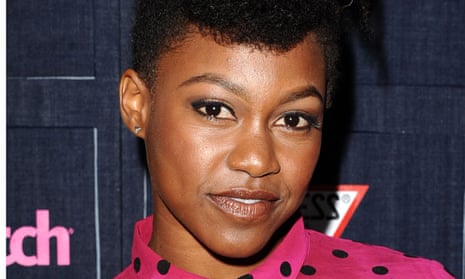
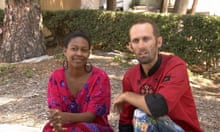

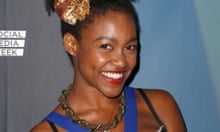


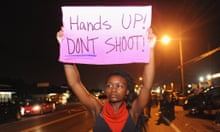

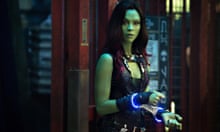
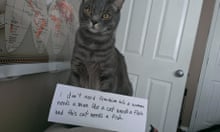
Comments (…)
Sign in or create your Guardian account to join the discussion